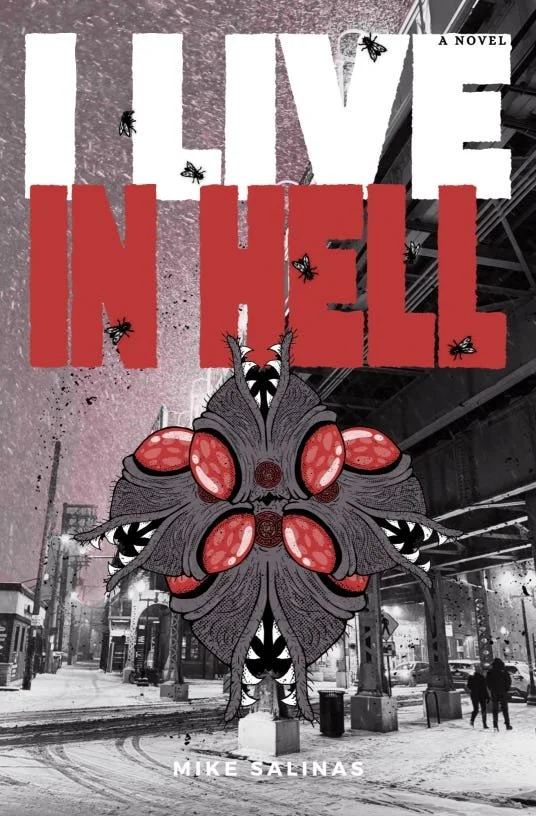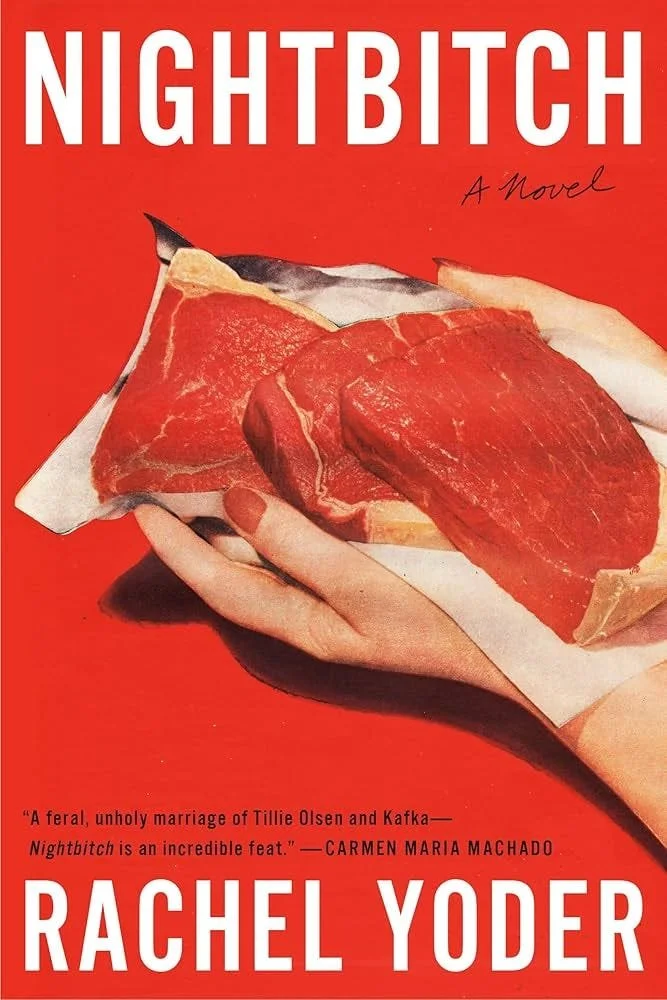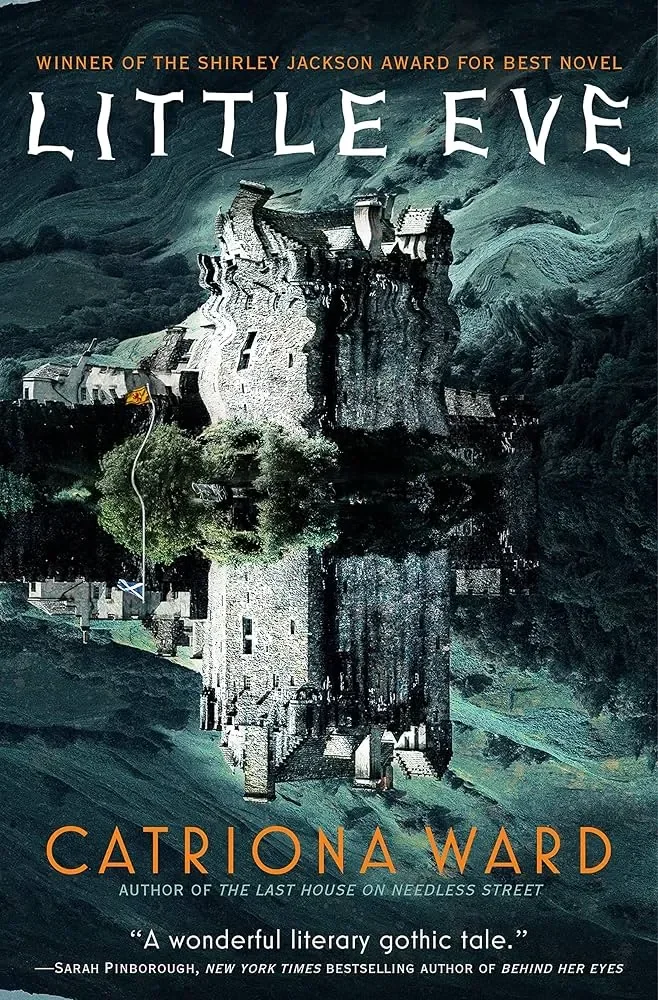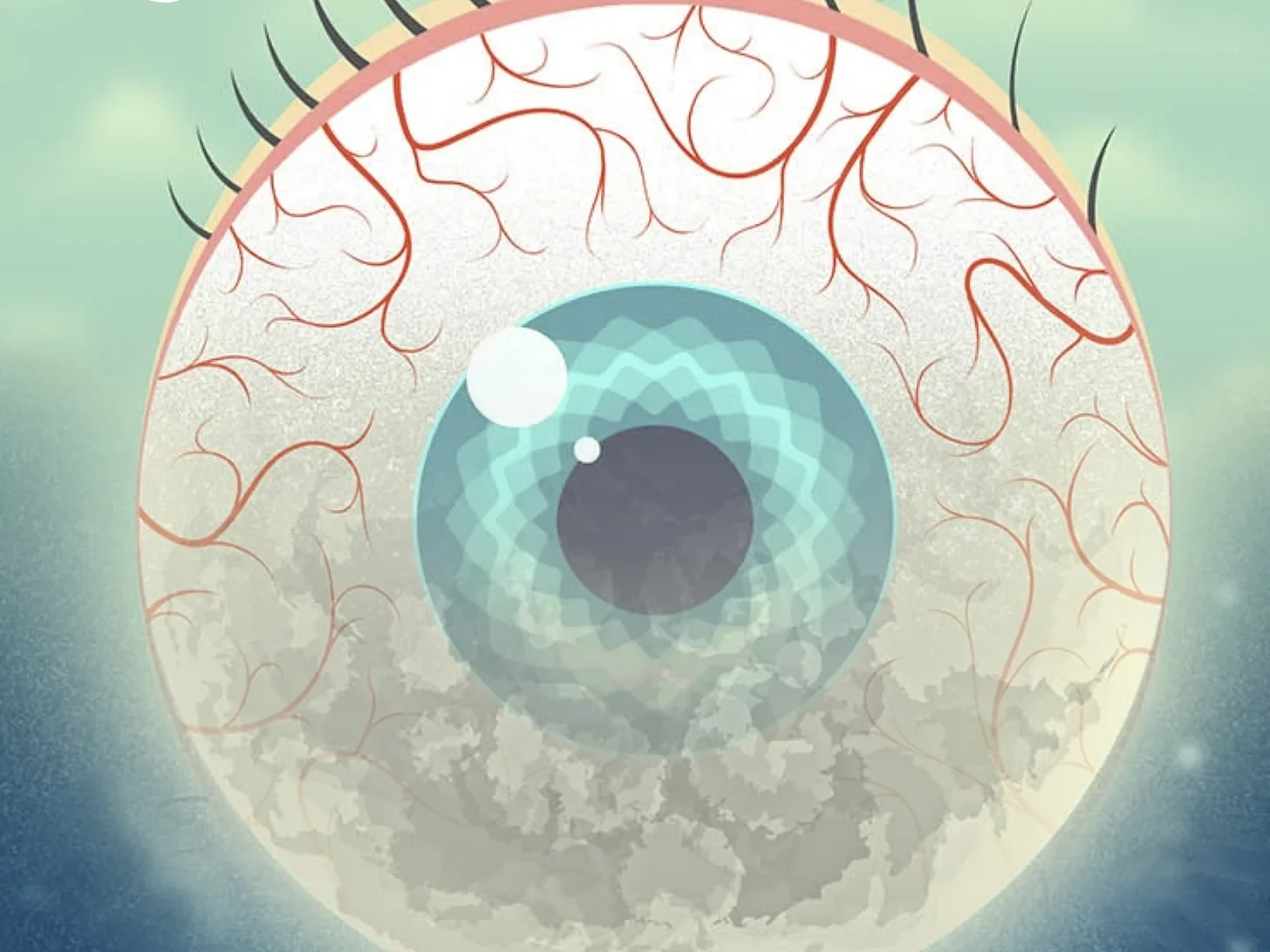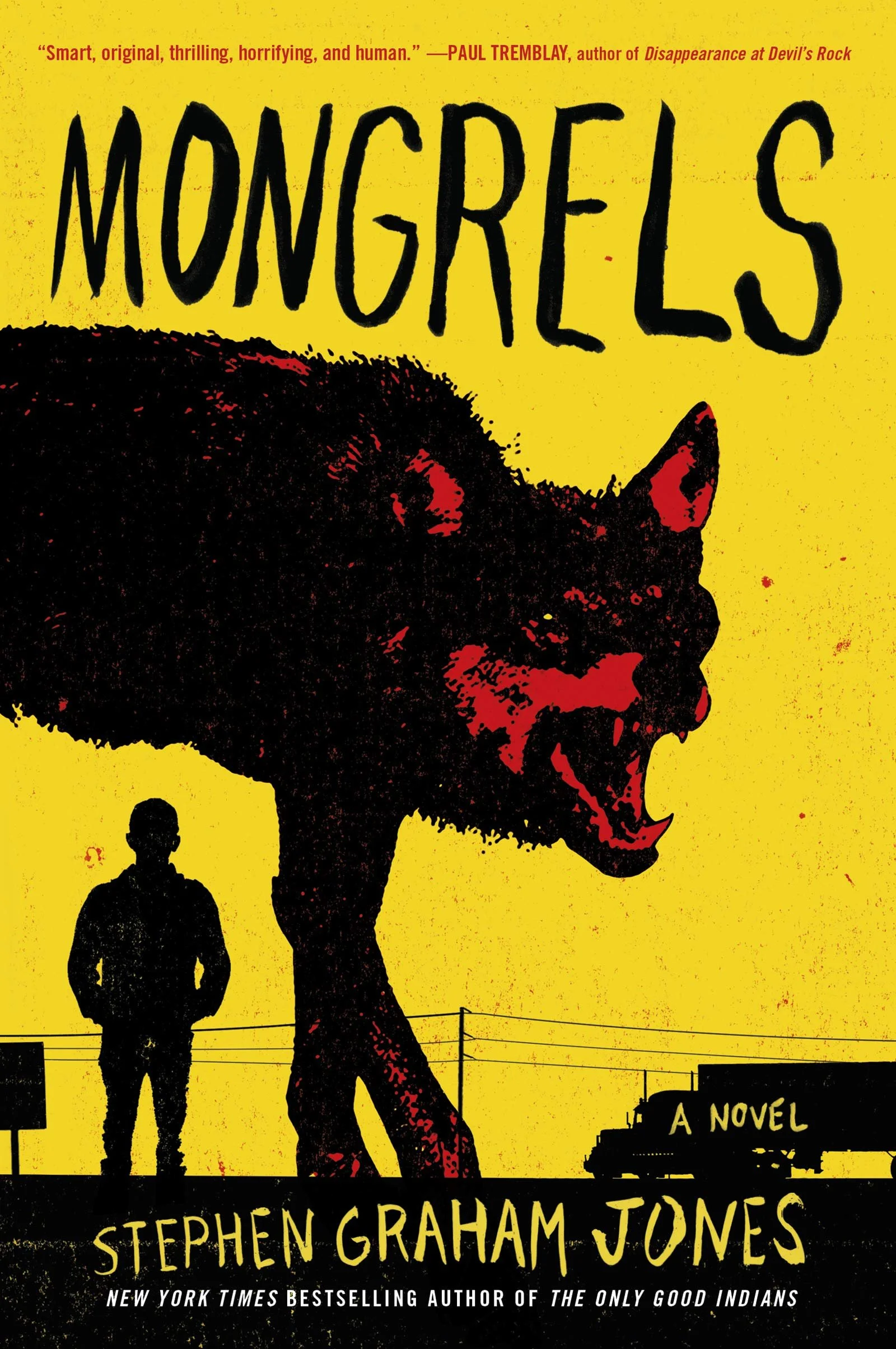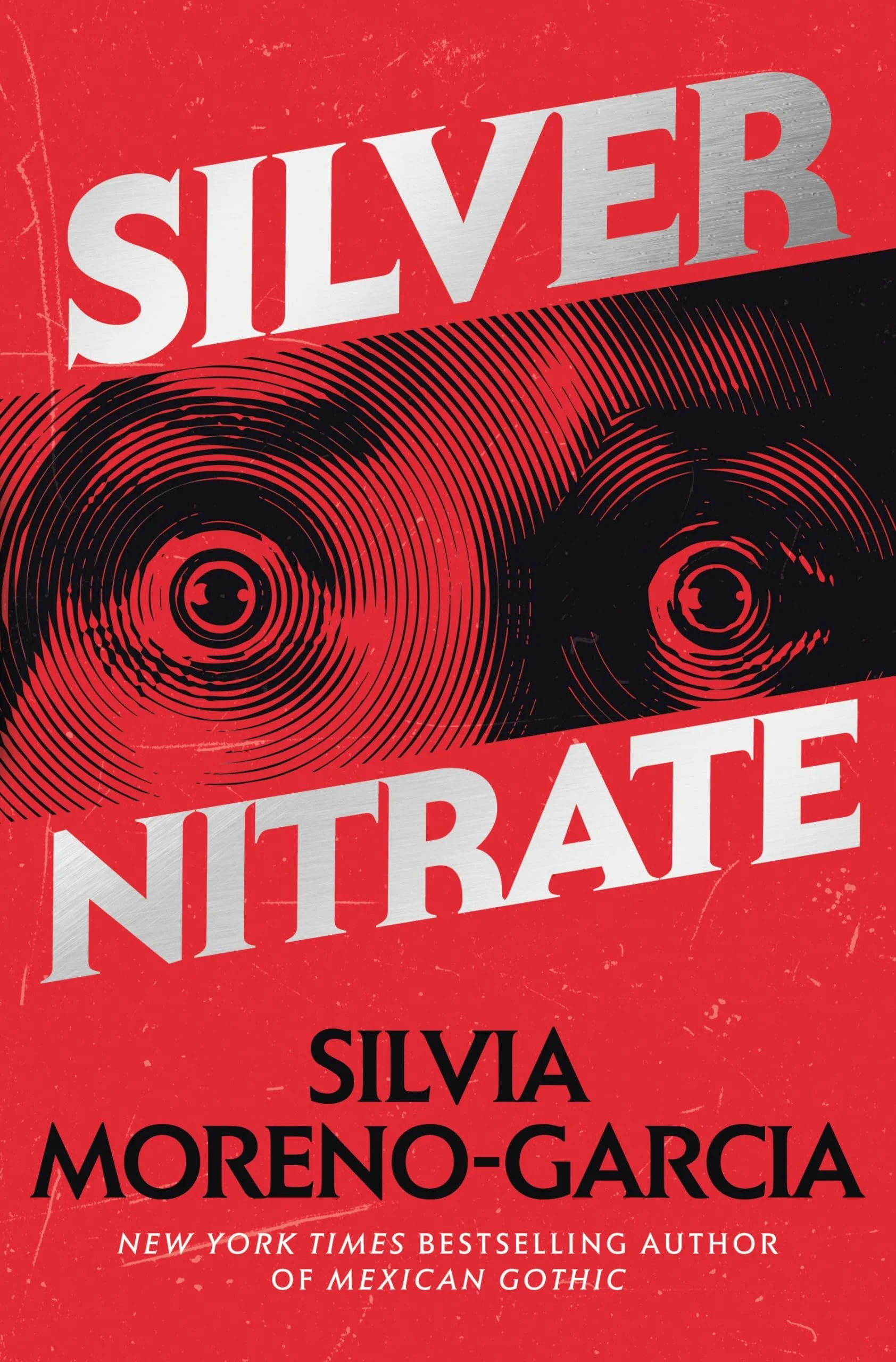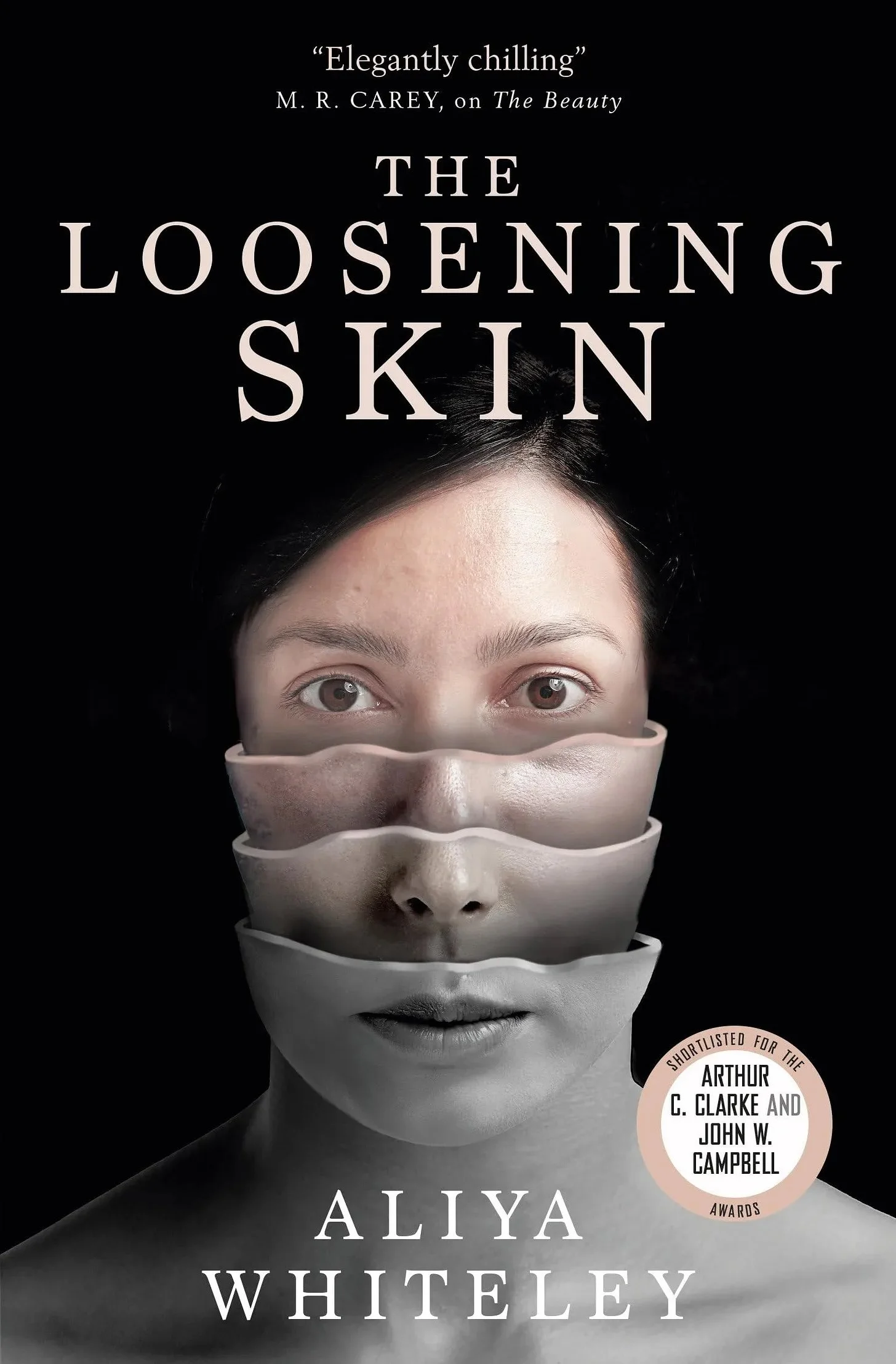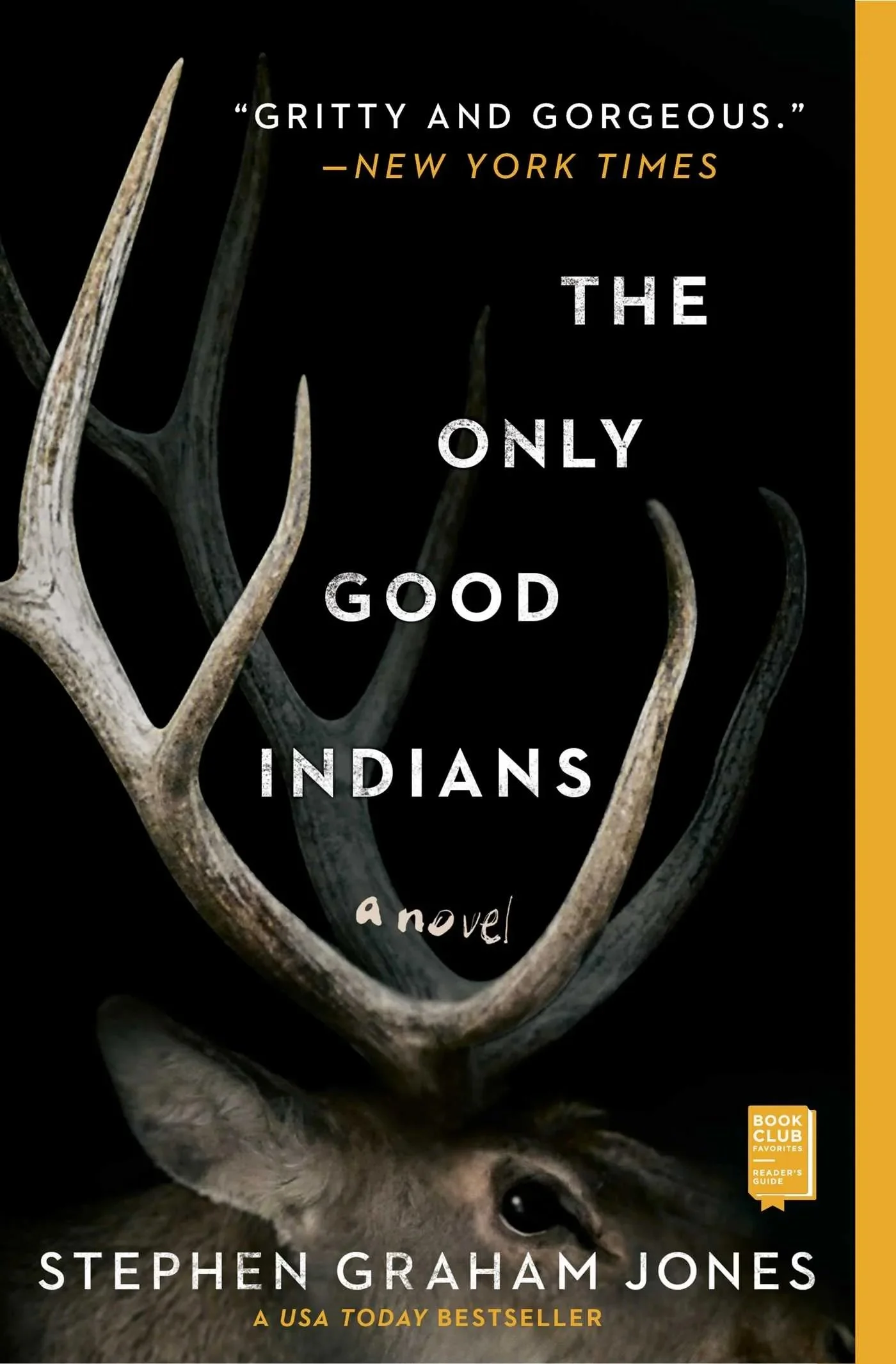I Live in Hell
I Live in Hell unfolds like a Russian doll of false awakenings. Hector Ghouseau’s hungover mornings (already nauseating; already damp) get progressively stranger as his reality breaks open at the zipper. Dreams bleed into waking life, waking life sours into something swollen and festering, and the whole narrative starts to feel like one long, anxious….something. Salinas isn’t interested in guiding readers through a kind plot. The commitment to letting the book peel itself open in front of its audience is palpable. Sometimes, a little sickening. Scenes bloom and collapse with a kind of psychedelic logic. It’s gross.
And it works.
nightbitch
Clocking in at approximately 64,000 words, Nightbitch is one of those novels that is on a visceral register entirely of its own. What begins as a slightly absurd tale of a stay-at-home mother who suspects she’s turning into a wolf quickly devolves (or evolves) into something much darker and corporeal than its premise lets on. Yoder’s prose is feral and strange both in structure and rhythm, creating a run-on whiplash of manic consciousness and raw physicality. It’s body horror, feminist manifesto, and animal lament all mashed up and served without dialogue marks.
My Year of Rest & Relaxation
Recognizing the narrator as my country itself is a painful thing: numbing and medicating, endlessly consuming while the immediate world is collapsing. A good majority of people I have met in Latin America and Europe often pride themselves on not taking any medication, marking the vice as purely an American shame. But then, they either medicate through excessive alcohol consumption or resign themselves to a level of suffering that could be improved if they sought treatment. Both positions carry a kind of stubbornness.
Little Eve
At about 80k words, this ‘un is thick with mood, built from salt, blood, rot, and regret. Ward’s tale is set on an island off the Scottish coast. The Isle of Altnaharrah feels less like a place and more like a memory not to be trusted. Be sure, this novel will burrow into your softest tissue in the way that only an unreliable narration can.
Sleep Donation
At approximately 88,000 words, Sleep Donation is a haunting, slippery novella. Author of the acclaimed Swamplandia!, Karen Russell crafts a prose that is a blend of lush and unsettling, pulling readers into an America gripped by an insomnia epidemic[…]In this speculative reality, Slumber Corps harvests sleep from donors for transfusion. The narrator is Trish Edgewater, a recruiter whose grief pushes her mission further and further into a reality that is, for lack of better words, surreal. The premise is wild: sleep is a commodity. And Russell makes it hurt.
Mongrels
Listen.
I usually hate coming-of-age novels.
But, clocking in at around 80,000 words, Mongrels is a novel that comes head-strong with teeth and claws and doesn’t let go, leaving readers to wrestle with its raw, bloody beauty long after the last word. Stephen Graham Jones crafts a story that’s as wonderfully feral as it is poignant, dragging readers through the dusty backroads of America alongside a family of werewolves who are as much outcasts by their nature as by their indigenous heritage. It’s a tale that’s equal parts a gritty bildungsroman and a visceral reimagining of the werewolf myth, steeped in themes of identity, survival, and belonging.
silver nitrate
Here’s the thing.
While the setup is fresh and Montserrat’s resilience carries the book like a champ, Silver Nitrate stumbles into a swamp of horror clichés that even a cursed film reel can’t salvage. We’ve got the tortured artist with a shadowy past, the creepy old mentor who knows too much, and a romantic interest who’s just brooding enough to make you roll your eyes. The occult intrigue starts strong, but by the midway mark, it’s like Moreno-Garcia decided to lean hard into every trope she could pluck from the B-movie bin at Walmart.
what the hell did i just read?
WTHDIJR is technically cosmic horror, but it’s comforting, especially now. Written in 2017, this book feels like it’s winking at us here in 2025. While the world outside continues in its ridiculous d*ck-measuring contest, Pargin’s version of the abyss feels like a familiar friend who shows up with a six-pack and a shrug, saying, “Yeah, it’s messed up, but we’ve got snacks and cigarettes.” Dave, John, and Amy aren’t heroes, they’re just relatable characters (with more tangible access to the Cosmos) trying to survive the incomprehensible, and there’s something deeply reassuring about that. The horror’s still there, lurking in the corners with its freaky little claws, but it’s balanced by the crew’s refusal to let the universe win. And the repartee is impeccable.
the loosening skin
While this novel incorporates body horror and dystopian elements, it ultimately prioritizes an intimate, emotional core over fear or shock. The shedding of skin isn’t a grotesque event, it’s a fact of life accepted with quiet inevitability. And within this construct, Whiteley plays with themes of detachment, longing, and the ways humans try (and fail) to hold onto our past selves. The main character, Rose, an ex-bodyguard navigating the wreckage of a love she no longer “feels,” moves through the novel with the kind of exhaustion that is relatable and deeply human.
the only good indians
This novel doesn’t waste time explaining things to an outsider. If you don’t get it, you don’t get it. And that’s part of its magic. The world Jones builds is immersive and insular; white people exist in the periphery, almost like background noise, and that in itself is a powerful narrative choice. Indigenous horror doesn’t have to justify itself to a colonial gaze. This isn’t a story about suffering for the sake of sympathy—it’s a story about an indigenous community, by an indigenous writer, told in a way that doesn’t dilute itself for mass consumption.
Audition
Audition desperately needs a modern rewrite. For all the vivid, visceral imagery Ryu Murakami delivers, the premise feels like a dusty relic from the late 90s—full of the kind of misogyny audiences come to expect (and roll their eyes at) from this genre. Swap the "audition" idea with some college frat bros scheming in a raunchy early-2000s dude flick, and the story would hardly change.
I'M THINKING OF ENDING THINGS
Reid’s deconstruction of the Final Girl trope. The last woman standing, bloodied but triumphant, surviving through her “virtue” and willpower? Reid picks that trope apart with precision, unraveling it bit by bit until the truth emerges—not explosively but with a slow, chilling realization. It’s sharp, disorienting, and a genuine shift from the usual psychological thriller formula.
the salt grows heavy
Khaw’s prose doesn’t care if the reader can’t keep up. Sentences hit like jagged waves, rolling over each other in dense, poetic heaps. At times, readers will find themselves gasping, not for breath, but for clarity.
Lapvona
Fairy tales of old often carry a moral, a shred of light at the end of the darkness. Lapvona? It snuffs out the light entirely, leaving you with only the bleak realities of power, faith, and human fragility. The tragedy and comedy of this book lies in how it warps expectations of a fairy tale. There’s no magic to save the day, no lessons neatly tied up.
SUNDIAL
Another thing: as a creative type, “fact is stranger than fiction,” is a quip I’ve always hated, furiously. However, Ward may be the first evangelical to effectively prove how mystifying (not just horrifying) the truth can be. Further inspired by the CIA’s MK Ultra experiments, this novel may in fact be a glimpse into possible philosophy and thought of what the modern world may perceive as “supernatural” Phenomena—among many other things.
TENDER IS THE FLESH
Similar to the unsettling discomfort of yanking out one strand of hair or accidentally lifting a nail bed briefly against the edge of a table, Bazterrica’s flavor of horror is breakneck, deliciously nauseating, and will not be easily forgotten in the annals of any reader’s sensational memory.
